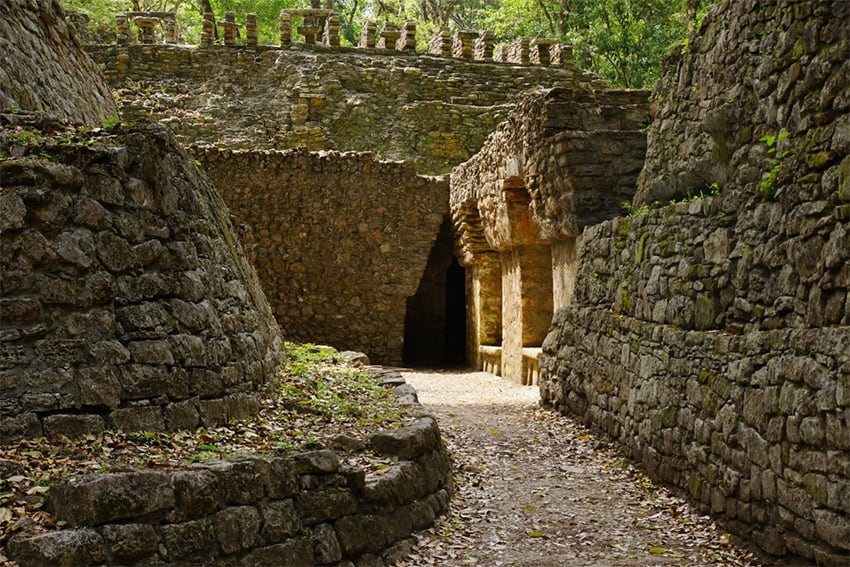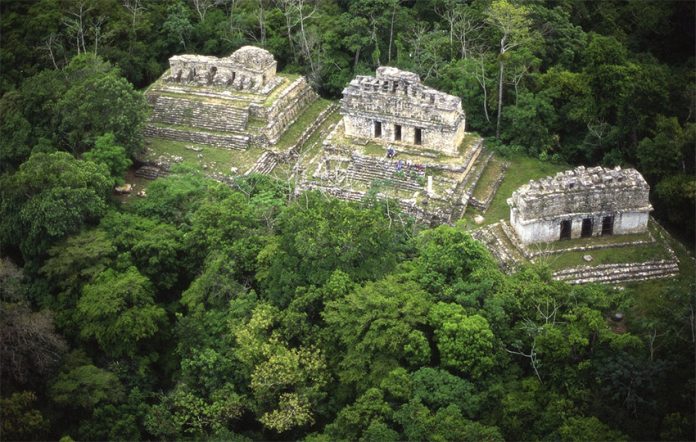After being closed since October due to cartel violence in the region, the Yaxchilán Archaeological Zone in the southern state of Chiapas reopened this week for tourism.
Local tour guide Silvano López Gómez called it “five months of paralyzing tourist activity,” but said now there is “a great opportunity to visit, learn about, enjoy and contribute to the conservation of the Lacandon Jungle.”
Located near Mexico’s border with Guatemala, Yaxchilán and other archaeological sites in the border region had been cited as risky places to visit by Diego Prieto, director of the National Institute of Anthropology and History (INAH).
“At INAH, we suggest that you don’t go … so you don’t have an unfortunate experience,” Prieto said in Janurary.
In turn, at least three travel agencies from Europe stopped including visits to the Lacandón Jungle — home to several important Maya ruins — on their travel itineraries. Cancellations poured in, refunds had to be issued and tourism in Chiapas came to a virtual standstill.
The reason why: The Jalisco New Generation Cartel (CJNG), the Sinaloa Cartel and local affiliates of those criminal organizations have been engaged in a turf war in the area for over three years. At stake are routes along which narcotics, weapons and migrants are transported north from Guatemala.

Esquivel Cruz González, commissioner for peace in the border community of Frontera Corozal, was excited about the reopening of Yaxchilán, noting that dozens of families that make a living from tourism have been hurting.
“This will give the region an economic respite,” he said, also noting that security protocols have been deployed to guarantee safe visits.
Cruz said Yaxchilán and the Bonampak Archaeological Zone were closed not only due to cartel violence, but also because locals deemed it necessary to arm themselves in response. The sites were closed “in order to contain and control the actions that were against the town.”
The decision to reopen came during a communal assembly on March 9. In turn, the ecotourism agencies Nueva Alianza and Escudo Jaguar also reopened.
This week, boats with tourists began leaving Frontera Corozal to ply the Usumacinta River and enter Yaxchilán by water. That’s how most tourists reach it; the other way is by flying in on a light aircraft and using a landing strip.
“We are going to rise back up, little by little, but every beginning is difficult,” said María Jiménez, a receptionist at Yaxchilán and a member of the Ch’ol people, who are Indigenous to the region and number about 9,000.
Aurelio Álvaro Jiménez, secretary of the Yaxkin Lacandonia society, said tourists should have no fears. “At the Corozal border, at this time, it is the best place in terms of security, because we have community guards, both at the entrance of the town and on the border with Guatemala,” he assured.
“We have a firm commitment to be able to rise to the occasion,” added Cruz González.
With reports from Proceso and El Financiero
